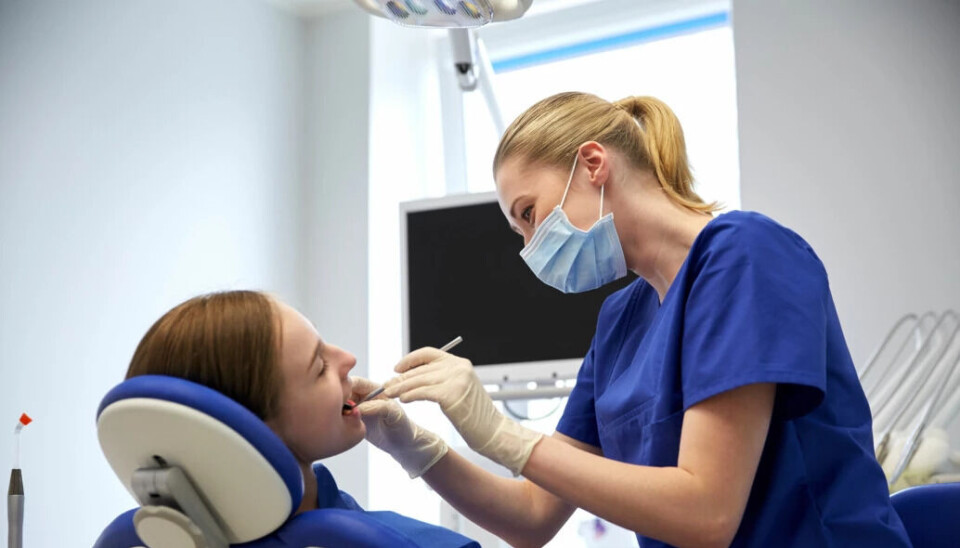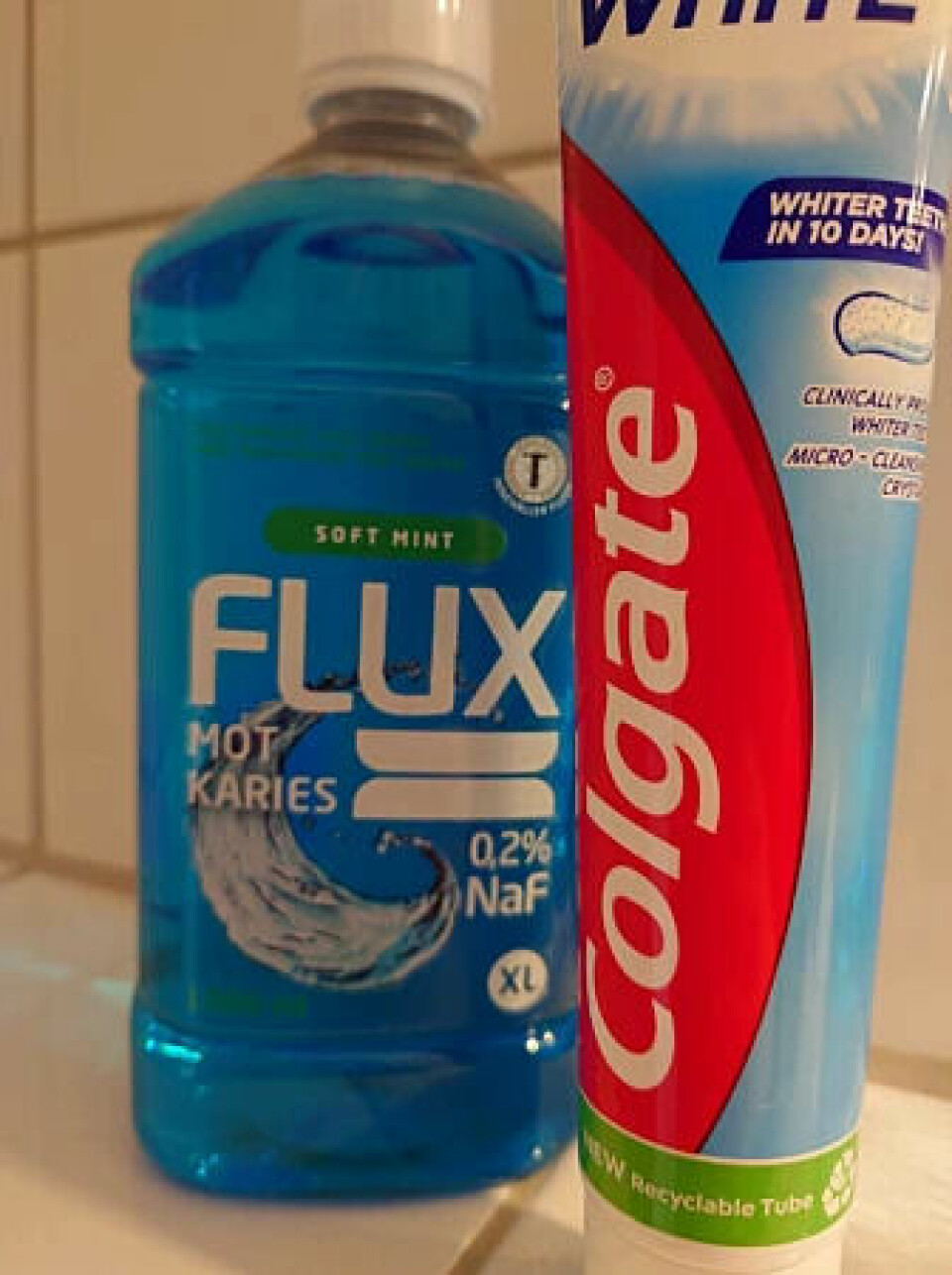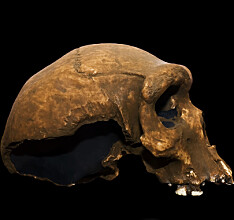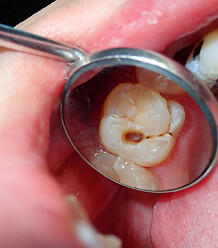
Most people get cavities before they turn 18. It's not just because of sugar
Only one in three 18-year-olds has zero experience with cavities. But most often, the worst occurs in early life, according to two Norwegian researchers.
Figures from Statistics Norway in 2021 showed that slightly more than 30 per cent of Norwegian 18-year-olds have never experienced cavities.
The number may seem high, but researcher Frode Staxrud tells us something interesting: It is more difficult to avoid cavities when you are young.
Staxrud works at the Nordic Institute of Dental Materials (NIOM). He is also a dentist.
New and porous teeth
“During the teenage years, your teeth are new and porous. They are more susceptible to caries. The curve flattens out when people pass 20 years. At that point the development is much slower,” Staxrud says.
People have good dental health in Norway, according to the experts.
Nevertheless, there are still some who struggle with their dental health. And dentists spend most of their time repairing fillings, Staxrud said in a forskning.no article in January (link in Norwegian).
“During their teenage years, more people get cavities. You get a new set of teeth and a blank slate,” Tove Irene Wigen says.
She is an associate professor at the Department of Clinical Dentistry at the University of Oslo.
According to Wigen, there is a large increase in the number of people who get cavities from the age of 12 until they are 18.
The explanation for this could be several things occurring at the same time, she explains.
So much else to do
Young enamel is a little more immature, Wigen explains. This makes it a little less resistant to bacterial attack. The longer your teeth spend in your mouth, the more fluoride from toothpaste can be absorbed by the enamel. This makes the enamel stronger over time.
Another part of the explanation is which teeth erupt first: The molars at the back of the mouth.
The first ones come at the age of six or seven. Then second molar comes between the ages of 11 and 13.
The molars at the back of the mouth are the hardest to reach with a toothbrush. Molars also have a rough surface for chewing that can be difficult to clean.
“It can be painful to brush the teeth at the back of your mouth when they erupt,” Wigen says.
A third thing is that during your teenage years, brushing your teeth tends to be a downgraded priority. There is so much else to do in the morning – and in the evening you may be tired and skip brushing your teeth, she explains.
“There are several things that happen at the same time, and it's important to remember to brush your teeth – and to brush the ones at the very back especially well,” Wigen says.
Establish a routine
Wigen is convinced that one of the most important things parents teach their children is to brush their teeth twice a day.
“If you don't get that routine established before you take over brushing your teeth by yourself, you won't be able to do it,” she says.
And that is another reason why many young people get cavities.
“Chewing surfaces of molars are the first surfaces to get cavities. As we get older, our teeth are in close contact with each other. This is when cavities can occur,” she says.
Dental floss is therefore recommended. But what about the use of dental floss for children and young people?
14-year-olds not the most diligent about flossing
“Those of us who research caries have some work to do here,” Wigen says.
According to her, there is little research that suggests that flossing has an effect on children’s teeth. That doesn't mean it doesn't work, she emphasises. There are simply not enough studies on it.
Wigen and colleagues examined some 14-year-olds in Eastern Norway. They found that very few of them were diligent about flossing.
“Half of them answered that they used dental floss. Of those who used it, 15 per cent said they used it daily,” she says.
In comparison, almost 80 per cent of them brushed their teeth twice a day.
Can cavities repair themselves?
You may have left the dentist with incipient caries – the beginning stages of a cavity – and been told that you can wait until your next appointment to see if it needs to be filled. Maybe the tooth can repair itself.
This depends on how big the cavity is, though, Wigen explains.
“If you only have small cavities that are only in the enamel, the tooth can be remineralised,” she explains.
This means that the damaged enamel can be restored.
Thorough brushing is required to remove the plaque and prevent the bacteria from doing more damage. And you need to add fluoride.
Speaking of fluoride: Should everyone use a fluoride mouth rinse a couple times a day?
Should everyone be taking extra fluoride?
Dentists love fluoride, which is perhaps to be expected. When fluoride came to Norway and became public domain in 1971, dental health quickly improved.
But not everyone should take extra fluoride.
“It's not the case that everyone should use extra fluoride. The risk of getting a cavity should be assessed,” Wigen says.
For those who have a normal, healthy diet with little sugar and no diseases that produce too little saliva in the mouth, it is sufficient to brush their teeth with fluoride toothpaste twice a day.
Saliva plays a very important role in how well we are protected against cavities. You can read more about that in this sciencenorway.no article from 2021.
And if a dental hygienist or dentist sees an increased risk of cavities, you could be recommended a fluoride mouth rinse in addition to the fluoride toothpaste.

White spots on teeth
Pre-school children should be careful about taking too much fluoride, according to Wigen.
“Children can suffer damage to their enamel during the teeth’s formation and develop white spots on them if they get too much fluoride when the teeth are forming,” she says.
“Most crowns – the visible portion of the tooth – are fully formed by the age of 7, and after that there is no risk of damage to the enamel from extra fluoride. You can always ask your dentist or dental hygienist if they think you need a fluoride supplement.”
However, there is something else that dentists have adopted more in recent years, says Wigen. It's called fissure sealant.
Protecting the surface of the enamel
Fissure sealant is used as a kind of varnish that seals a tooth’s surface. You see, the enamel is not completely smooth.
The more uneven your enamel is, the harder it is to brush bacteria away. This varnish provides an extra layer of protection because it evens out the unevenness. This prevents cavities.
“How often this technique is used on children in Norway varies. The Norwegian Directorate of Health recommends that it be used a little more,” Wigen says.
Children and young people with a high or moderate risk of cavities should be offered fissure sealant, the Directorate of Health writes on its website (link in Norwegian).
Is it worse to drink energy drinks in your teens?
Acid erosion in young teeth is a thing. In recent years there has been a rise in the sale of energy drinks and soft drinks in Norway.
In January this year, broadcasting company NRK reported that (link in Norwegian) between January and November 2022, Norwegians drank 68 million litres of energy drinks.
Is it worse to drink energy drinks and coke when you are young or an adult?
Wigen sees no reason why adults should be less susceptible to acid erosion. It depends on how thick your enamel is and how well your saliva protects against acid damage.
It varies from person to person. She adds that certain medications can also make your mouth drier.
There is still much to do for young people's dental health
Wigen knows that it is more challenging for teenagers to routinely brush their teeth than for adults.
“It is important not to forget to brush your teeth in your teens, even if you have a lot of other things to think about,” she emphasises.
The fact that two out of three have had a cavity by the time they turn 18 shows that there is still more that can be done.
———
Translated by Alette Bjordal Gjellesvik.
Read the Norwegian version of this article on forskning.no






































